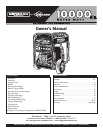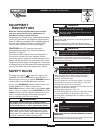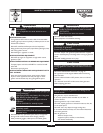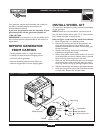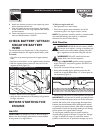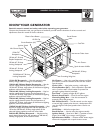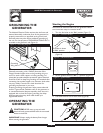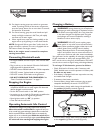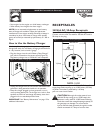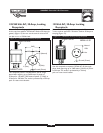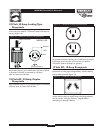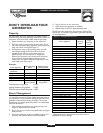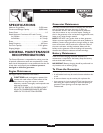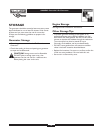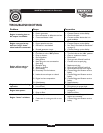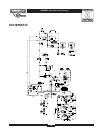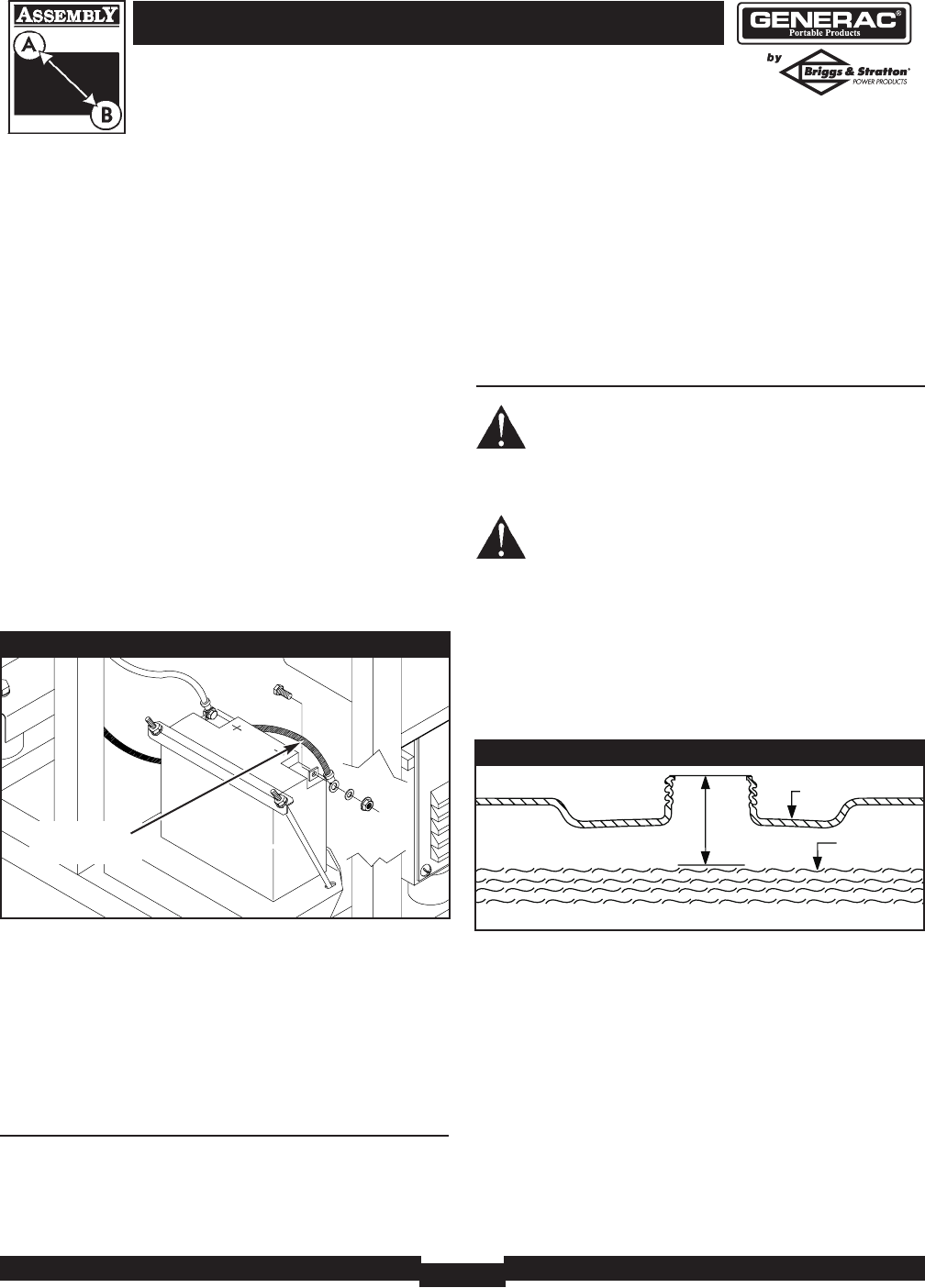
8. Attach the vibration mounts to the support leg with a
30mm capscrew and lock nut.
9. With the wheels on, secure the support leg assembly
to the cradle with 20 mm long capscrews, flat washers,
and lock washers.
10. Check each fastener to ensure it is secure and the
tires are inflated between 15-40 PSI.
CHECK BATTERY / ATTACH
NEGATIVE BATTERY
WIRE
The sealed battery on the generator is fully charged and
pre–installed except for the negative (black) battery cable.
To install:
• Cut off tie wrap securing loose end of negative (black)
cable.
• Remove nut and washer on the negative battery terminal.
• Slide the negative battery cable over the screw on the
negative terminal (Figure 2).
• Reattach washer and nut and tighten.
• Verify that the connections to the battery and generator
are tight and secure.
BEFORE STARTING THE
ENGINE
Add Oil
CAUTION! Any attempt to crank or start the engine
before it has been properly filled with the recommended
oil may result in an engine failure.
To fill your engine with oil:
• Place generator on a level surface.
• Follow the oil grade recommendations and oil fill
instructions given in the engine owner’s manual.
NOTE:The generator assembly rotates on a prelubricated
and sealed ball bearing that requires no additional
lubrication for the life of the bearing.
Add Gasoline
WARNING! NEVER fill fuel tank indoors. NEVER
fill fuel tank when engine is running or hot.Allow unit
to cool for two minutes before refueling. DO NOT
light a cigarette or smoke when filling the fuel tank.
WARNING! DO NOT overfill the fuel tank.
Always allow room for fuel expansion.
• Use regular UNLEADED gasoline with the generator
engine. DO NOT use premium gasoline. DO NOT mix
oil with gasoline.
• Clean area around fuel fill cap, remove cap.
• Slowly add unleaded regular gasoline to fuel tank. Be
careful not to overfill.Allow about 1.5" of tank space for
fuel expansion (Figure 3).
• Install fuel cap and permit any spilled gasoline to evaporate.
IMPORTANT: It is important to prevent gum deposits from
forming in essential fuel system parts, such as the carburetor,
fuel filter, fuel hose or tank during storage.Also, experience
indicates that alcohol–blended fuels (called gasohol, ethanol
or methanol) can attract moisture, which leads to separation
and formation of acids during storage.Acidic gas can damage
the fuel system of an engine while in storage.
To avoid engine problems, the fuel system should be
emptied before storage of 30 days or longer. See “Storage”
on page 14. NEVER use engine or carburetor cleaner
products in the fuel tank or permanent damage may occur.
5
10000EXL Extended Life Generator
Figure 2 — Negative Battery Connection
Negative
Battery Cable
Figure 3 — Typical Fuel Expansion Space
Fuel
Tank
1.5” Air Space



